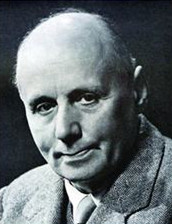Learning by Doing——UWC Students Excelled in ASDAN Competition
Issue date:2018-11-30In March 2018, a team of six students of UWC Changshu China who come from six different countries, participated in the two-day ASDAN regional business simulation competition in Shanghai, placing first out of 18 other schools and winning three additional accolades. Their achievement led them to the National Finals in August at Yale’s World Youth Economic Forum on a full scholarship. Here they won the Best International Marketing Strategy Award and the Best Company Website Award; ranking 5th out of 45 other regional winners throughout China.

UWC team group photo with Economics teacher, Shirla Sum (right)
“I am thoroughly impressed with the level of teamwork, professionalism and sportsmanship displayed by this team. As the only international students participating in this Chinese national competition, these students have taken great initiative in learning more about the local business context and engaging in intercultural exchange. The ASDAN competition is also a fantastic example of experiential education which we value greatly at UWC Changshu China. Through a range of problem-solving tasks, students learn from applying interdisciplinary knowledge, from economics to environmental science, in the most practical way.”
– Shirla Sum, Economics teacher
A business simulation is a team competition in which “companies” attempt to identify the most profitable combination of inputs (salary, marketing, pricing, etc.), with the outcome determined by a computer algorithm representing a real-world market. The algorithm issued quarterly reports on sold and unsold products, lost workers, market share, and other data. Each team’s overall objective was to understand the market: what does hiring more workers and dropping price lead to? How does allocating more funding toward quality influence our unsold products? All of these questions and more were the focus of the team during the simulation rounds.
“The business simulation was especially rewarding because of its focus on real-world business rather than theory. As a team member who does not take economics, I was able to learn a lot about the theory behind business management while applying my prior knowledge of the subject in a meaningful way."
- Bastian Mielke (Germany/Mexico)
During these rounds, jobs were parceled out as follows: two of us worked on mathematics the entire time, calculating profit, available funds, tax, storage costs, production costs, and salaries, to name a few. Other members of the group deliberated tirelessly over the potential market outlets, expenses on sales promotions, and so on.

Still, the simulation rounds were not the only means of earning revenue in the competition. Another way for teams to earn significant revenue was through the presentation rounds.
“I loved the challenges, from the trading and auction games, where we needed to negotiate with several different people, from the presentations, where persuasion was key.”
- Teddy Wongkar (Indonesia)
These presentations were meant to simulate realistic sales pitches in which entrepreneurs present their products and overall business strategies in order to attract investors. Throughout the competition, our team gave presentations about our marketing plans, green product design, and company website. For the presentation on marketing strategies, we laid out our plan for how best to enter three distinct markets: Morocco, Indonesia, and Switzerland. We elaborated on how each advertising campaign would be unique, and how each would be compatible with the target audience, as well as why we chose these specific markets.

“Being part of such an international team was definitely an advantage. I think we made great connections with team members of other schools and shared our own school’s values in every interaction.”
- Ergys Bozgo (Albania)
In the presentation on green product design, we explained how our product's features are superior in the measure of sustainability and environmental-friendliness. This includes our product's full upcyclablility (as opposed to recyclability), zero waste, consistent software updates, green label with high standards, and multi-functional packaging. Finally, the presentation of the company’s website highlighted the unique features of our website, including its ease of access for customers, an elegant e-shop, a page dedicated to upcycling, 24/7 customer service, and a career page for bright, potential employees seeking to join our company. Our team was very successful in these presentation rounds, winning two awards including the Best International Marketing Strategy Award and the Best Company Website Award.
“To me, this competition was a great experience. The simulation made me realize that organization and trust in the team is the key to success. Moreover, being CEO of the team was a challenge, but thanks to my teammates it went pretty well! One of the most valuable lessons that I have learned is that a leader should be able to listen; I found a true passion at ASDAN.”
- Kamil Mouthon (Morocco/France)

Throughout the competition, many of us had the opportunity to put into practice what we have been learning during our classes. At the same time, we explored the field we may want to go into as a career in the future. These experiences showed the importance of teamwork in an efficient company: doubtless, the neat partition of roles allowed us to achieve our results.
“The simulation taught me that teamwork is the most important aspect of business management. Each of us had our own areas of expertise, and in a business, professionals in a certain field can always be hired. But the difficult part, and therefore the key to success, is perfecting an environment of constructive collaboration.”
- Fritz Kuhn (US/Switzerland

For example, Dario was assigned the role of designing the website, while others worked on the presentation of the website. Being passionate about coding, Dario saw the task as a chance to apply his technical skills in this area. Indeed, developing a whole website in a couple of days was a real challenge. After a long night of design and coding, we were all proud of the result.
“It taught us so much more than we expected, regarding the functionalities of a team, where we needed to focus, and how to speak up about our ideas. It has been an honor, for me, to represent my country and UWC in a Chinese national championship, hoping that many of my fellow students will have the chance to have the same experience in the future.”
- Dario Fumarola (Italy)










